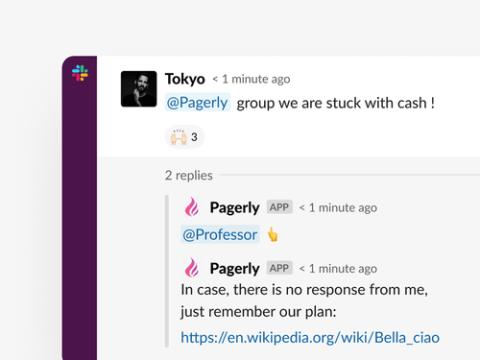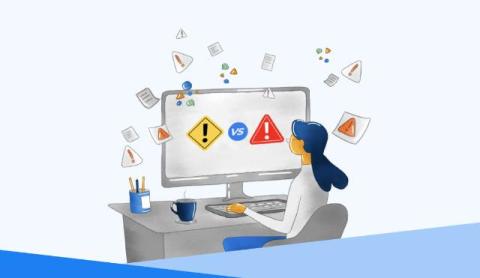Mention the on-call situation in Slack channels
Get each team's current oncall automatically and tag them into any Slack topic. To bring up the current oncall in any channel, topic, or conversation, use @Pagerly. You may also use this to automate responses.










